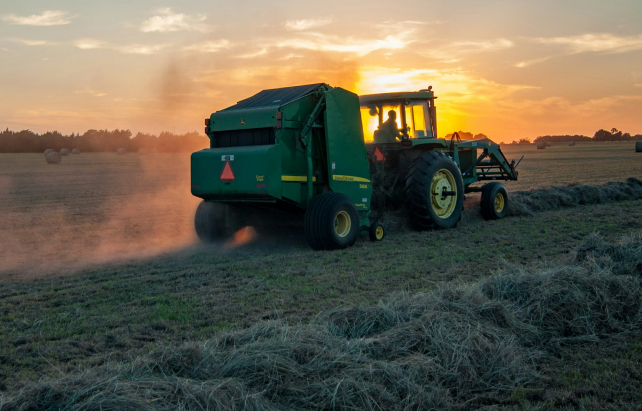“Investors often take cues from other investors who are playing a different game than they are.” – Morgan Housel, The Psychology of Money
The challenge with growing an operation is knowing what game you want to play. Historically, farmers’ growth playbooks have largely been shaped by the market forces they experience over time:
- 1930’s: Farmers who survived the Great Depression learned to hold onto money and get by with what they had.
- 1980’s: Rising interest rates and falling land prices bankrupted many farmers. The farmers who survived learned not to overpay and borrow too much money.
- 2010’s: Persistently low interest rates and appreciating land allowed farmers to easily borrow against their owned equity. Farmers who caught on learned to use leverage to accelerate their growth.
Each set of farmers living during these decades were right in their approach for the time. Applying any one of these strategies blindly to today’s economic environment creates obvious challenges.
What Growth Playbook Works Today?
There’s no silver bullet answer. Complicating matters even more is understanding how your growth playbook changes depending on your goals, time horizon, and current balance sheet. Just like you shouldn’t make 2010’s investing decisions during the 1980’s, you also shouldn’t make farm purchasing decisions like you are a $75 million net worth businessman if you don’t have the balance sheet to support it.
Let’s take a look at three growth playbooks that change based on a farmer’s situation, goals, and time horizon when buying farms. The trick is identifying how you want to grow.
The ‘Generational Transition’ Playbook
- Goal: Legacy
- Time Horizon: 30+ years
Take, for instance, a farmer with a net worth of $15 million having low debt levels, 5 years left to farm, 3 kids back in the operation, and 4 grandkids interested in coming back. Paying $2,000/acre above the previous high price in the county would be a small price to pay for a farm that will help ensure their hard work from the past 50 years and legacy continues through the family for generations. This ground will never be sold again.
The ‘Just Starting Out’ Playbook
- Goal: Growth and positive earnings
- Time Horizon: 5-10 years
How about a farmer in their late 20’s with a net worth of $1.5 million? They may like to buy-and-hold ground for the rest of their career but may be better off finding the less than pristine property at below market value. With this purchase they can add sweat equity to force some appreciation and flip the property as down payment for a farm more sustainable in the future.
The ‘Farmland Investor’ Playbook
- Goal: Asset diversification, taxes, and appreciation
- Time Horizon: 1-5 years
Farmers aren’t the only ones buying ground. Investors often aren’t looking to buy-and-hold a property for the next 30 years and probably aren’t looking at returns in any way that a farmer would. As cash buyers in a rising market with short-term holding intentions, their goals and time horizon look much different right now than the farmer.
How Can You Better Compete? Know Your Game
Bubbles in the market start to happen when long-term investors (often farmers) take queues from short-term investors (often non-farmers) who are playing a different game.
Identify your own situation, goals, and time horizon when buying farms.
Suppose a businessman in Dallas, TX sells the company they have been building for the past 25 years for $75 million. They proceed to go to a nearby car dealership, buy a vehicle for $150,000 cash, and drive it off the lot. We can all agree this is a reasonable purchase and they earned it.
What we don’t do is go to that same dealership, get financing, and drive off with the same car; this isn’t within our means.
Limited by Capital? Find The Right Partner
Many investor partners have different goals and shorter time horizons. If you lack the capital needed to purchase and require control over your farms, find a partner who can provide capital and is willing to give up that control. Much more can be achieved by two like-minded partners than one who operates solo.
When you attend the next land auction for ground you plan to bid on, focus on the goals and time horizon that make the most sense for your situation. Stay within your means and don’t chase prices to the top without having a partner in mind. Know which game you are playing.
This article was influenced and inspired by Morgan Housel’s book “The Psychology of Money”, Chapter 16 – You and Me.
ABOUT THE AUTHOR
Grant Wiese is a former ag loan underwriter and current ag lender in Southern Nebraska while also farming corn and soybeans with his dad and brother. He combines these experiences to help farmers creatively acquire land and grow their financial literacy. We’re excited to share this knowledge with our subscribers. For more great content, sign up for Grant’s weekly newsletter at www.farm640.com.
LEARN HOW TO UNLOCK YOUR EQUITY
"*" indicates required fields
We hold your data in high regard. By submitting this form, you are consenting to the use of this information in compliance with our Privacy Policy.


